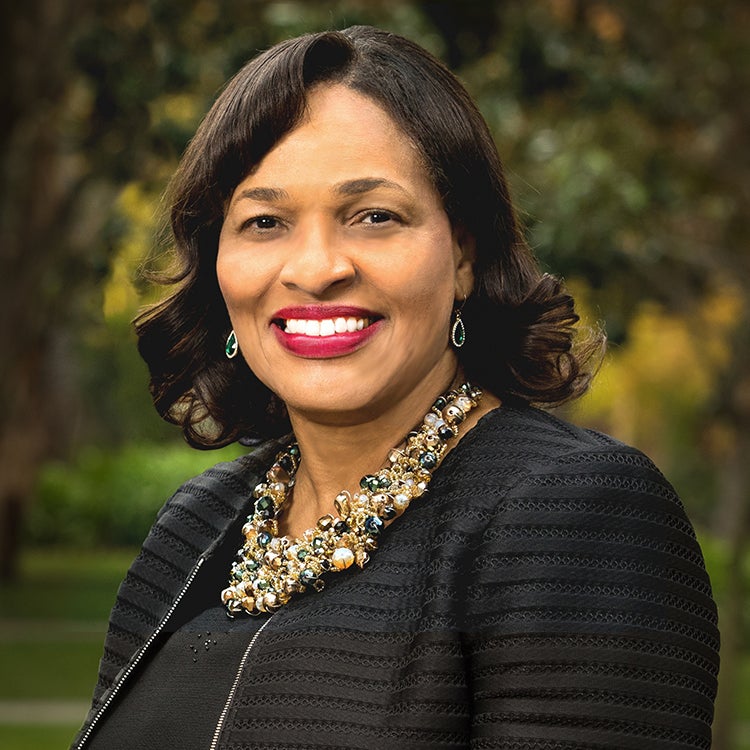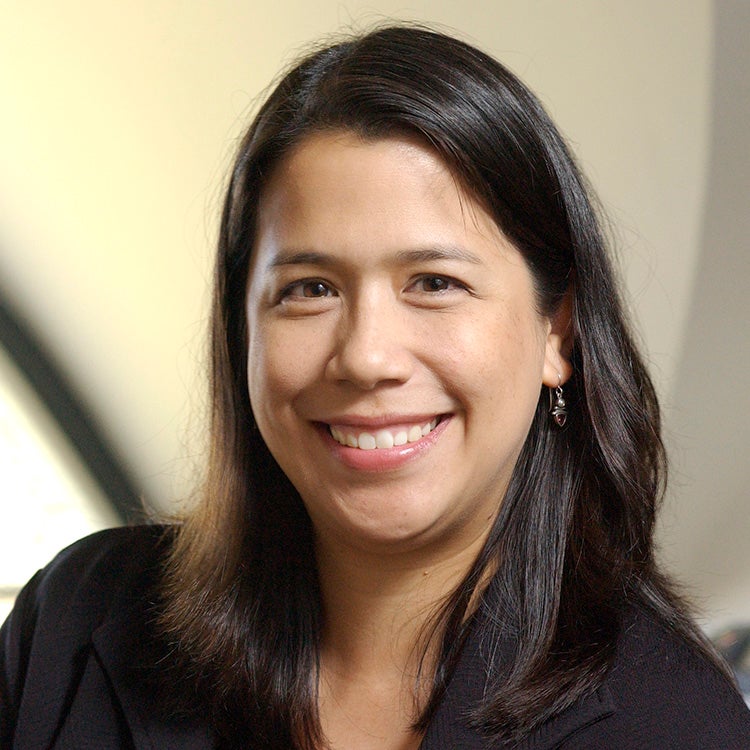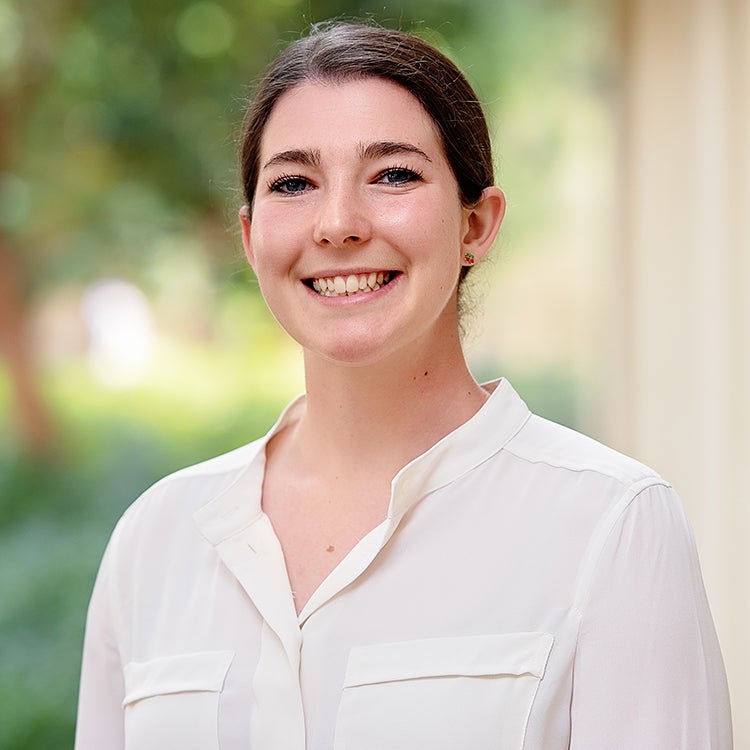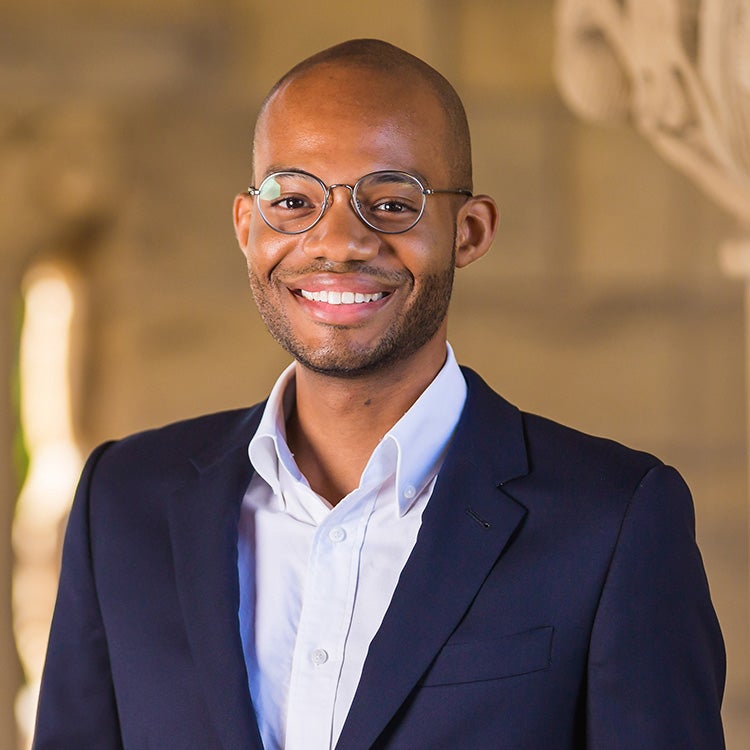Stanford has announced the winners of this year’s Cuthbertson, Dinkelspiel, and Gores awards, which honor faculty, students, and staff for their exceptional contributions to the university community.
The eight winners will be honored at Stanford’s 131st Commencement ceremony on Sunday, June 12, at 9:30 a.m. at Stanford Stadium. The ceremony will be livestreamed online and a video of the event will be available on Stanford’s YouTube channel.
The university awards are managed by the Registrar’s Office. More information is available on the University Awards webpage.
Following are this year’s winners:
Kenneth M. Cuthbertson Award winner
The Kenneth M. Cuthbertson Award is open to all members of the Stanford community and recognizes extraordinary contributions to the achievement of the goals of the university.
This year’s winner is Shirley J. Everett, senior associate vice provost of Residential & Dining Enterprises and senior adviser to the provost on equity and inclusion. The Cuthbertson Award honors her more than 30 years of distinguished leadership and service to Stanford, including her vital role in supporting students through the residential learning mission of the university and for building Residential & Dining Enterprises to be the “industry gold standard.”
Everett’s many contributions include co-founding the Menus of Change University Research Collaborative and founding Stepping Stones to Success and the campus-wide Women’s Leadership Development Program.
She is also honored for promoting diversity, equity, and inclusion and being an inspiration and mentor to many staff of color at Stanford.
Lloyd W. Dinkelspiel Award winners
The Lloyd W. Dinkelspiel Award recognizes distinctive and exceptional contributions to undergraduate education or the quality of student life at Stanford.
Sharon R. Palmer is senior associate vice provost in the Office of the Vice Provost for Undergraduate Education. She is recognized for her exceptional dedication to and influence on enhancing the quality of undergraduate education at Stanford, her advocacy for educating the “whole” Stanford student, and her “warmth, knowledge, and inclusivity in leadership.”
She is also recognized for contributions to the entire breadth of undergraduate education programs, from community-engaged learning to residential life, and from mentoring students to guiding faculty committees.
Gabriel K. Wolfenstein is the undergraduate advising director in the Office of the Vice Provost for Undergraduate Education. He is honored for his contributions to managing a successful research program for undergraduates, as well as his support of numerous undergraduates who have benefited from his advice and guidance, including in times of crisis.
He is also recognized for his “availability, compassion, wisdom, and care for students throughout their Stanford careers” and for guiding first-generation and low-income students acclimating to Stanford.
Claire L. Rosenfeld is a coterminal student pursuing a bachelor’s degree in computer science and a master’s degree in management science and engineering. She is honored for her “humble, empathetic, and dedicated servant leadership” at Stanford, and creating a lasting and meaningful impact across extracurricular activity, residential communities, and academic programming.
She is commended for her deep care for her fellow students and their experience at Stanford, including her role in providing peer-to-peer support for students during times of crisis. She is also recognized for her ability to foster connections and unite individuals to form cohesive, thoughtful, and intentional communities.
Emma Katherine Smith is an undergraduate studying international relations. She is recognized for her instrumental leadership in the expansion of the Society for International Affairs at Stanford and developing a student-initiated course enabling newer Stanford students to form connections with faculty mentors.
She is also recognized for her work at The Stanford Daily, informing students about international issues and their relation to campus life and fostering a sense of global citizenship and community. She is lauded for her ability to empower others, lead by example, and excel in the realm of civic engagement.
Walter J. Gores Award winners
The Walter J. Gores Award is the university’s highest award for excellence in teaching and celebrates achievement in educational activities, including lecturing, tutoring, advising, and discussion leading.
Stuart Thompson, a professor of biology, is honored for his pedagogical approach, which involves deep care for students and the encouragement of open debate that’s inclusive of all voices.
He is lauded for viewing each student as an individual to be nurtured and developed in unique ways, for guiding them in how to think and be open-minded, and for providing learning experiences that students have described as “life-changing.”
Matthew Clair, an assistant professor of sociology, is honored for his engagement with and advising of students that demystifies the academy and makes students feel comfortable and confident.
He is recognized for his serious approach to teaching – providing students researched and carefully composed answers to their questions, drawing students into deeper engagement with the material – and for his ability to inspire students to ask questions and interact with one another.
Juliette Woodrow is a coterminal student studying computer science. She is honored for her exemplary teaching, encouragement, and support for all learners, and her mentorship and leadership of other teachers and section leaders, inspiring their best work.
She is recognized for her continuous, dedicated service on the CS106 staff, having served more than 3,000 students over 13 quarters. She is also lauded for her innovative work in designing new tools and pedagogical practices, including design for accessibility, tools for paired student learning and problem solving, and practice puzzles for teaching training.







